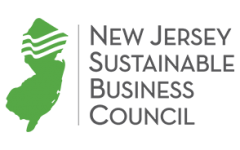Consumers are our real job creators in New Jersey. As a business leader, I know consumer spending is the mainstay of our economy. Businesses across New Jersey need consumers who can afford their products and services.
Raising the minimum wage is a very efficient way to boost consumer demand— and, in turn, businesses and the economy. It puts additional dollars into the hands of low-income New Jersey residents, the very people most likely to spend those dollars. This increase in consumer spending will help businesses go from surviving to thriving, add jobs, and grow the economy.
For generations, many business leaders have understood that if you pay workers bare bones wages, you limit the market for your products and services. The size of a market is a function of both demand for a product and the number of potential customers with adequate purchasing power. When businesses pay fair wages to workers, they fuel demand.
Paying employees a fair minimum wage not only boosts business by boosting consumer demand, it has far-reaching benefits inside of a business.
Take, for example, Earth Friendly Products, a 50-year-old, family-owned manufacturing company with a manufacturing plant in Parsippany. Earth Friendly Products pays a good starting wage and in return, they have attracted and retained dedicated employees, have very low voluntary turnover, which means lower hiring and training costs, and have maintained high levels of product quality, employee morale and customer satisfaction. Fair wages have created a virtuous cycle that benefits their employees and has fueled the company’s strong growth over the short- and long-term.
But we can’t just leave it to individual companies to raise their starting pay voluntarily. Government has a vital role to play in setting a fair wage floor. As we’ve let the value of the minimum wage erode relative to the actual cost of living, we have shifted labor costs from the company to taxpayers. Companies that pay wages their employees can live on are faced with subsidizing their low-wage competitors through the social safety net. That’s not an efficient or fair way to run an economy.
It’s bad for business and the economy when full-time workers must rely on public subsidies like food stamps in order to provide for their basic needs. Keeping the minimum wage low fuels greater income inequality, while systematically weakening the consumer purchasing power that companies and the overall economy depend upon to thrive over the long run.
Raise the minimum wage and you create a virtuous cycle: increase consumer demand, decrease the number of working people who must rely on taxpayer subsidies, and level the playing field among businesses.
This article was originally published in NorthJersey.com

